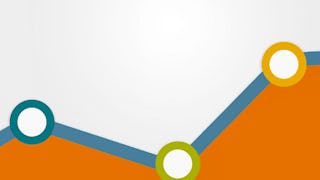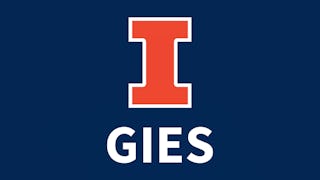This course introduces students to marketing analytics as a data-driven approach to solving real-world marketing problems. It covers four key areas: causal analysis (identifying cause-and-effect in marketing interventions), predictive modeling and AI (forecasting customer behaviors using machine learning), social media analysis (extracting insights from online consumer interactions through text and network analysis), and consumer demand and preference analysis (estimating preferences, demand, and customer lifetime value). Students will gain hands-on experience using Python to analyze diverse data sources, apply advanced analytics techniques, and generate actionable insights to support strategic marketing decisions.



Applying Data Analytics in Marketing
This course is part of Business Analytics Specialization

Instructor: Unnati Narang
23,983 already enrolled
Included with 
(187 reviews)
Recommended experience
What you'll learn
Ability to design experiments and apply quasi-experimental methods to identify and measure the impact of marketing interventions.
Use of machine learning and AI techniques to forecast customer behaviors and marketing outcomes.
Analyzing consumer sentiment, influencer networks, and user-generated content through computational text and network analysis.
Estimating customer preferences, demand patterns, and calculating customer lifetime value to inform marketing strategy.
Skills you'll gain
Details to know

Add to your LinkedIn profile
5 assignments
See how employees at top companies are mastering in-demand skills

Build your subject-matter expertise
- Learn new concepts from industry experts
- Gain a foundational understanding of a subject or tool
- Develop job-relevant skills with hands-on projects
- Earn a shareable career certificate

There are 4 modules in this course
In the first module, we will discuss analytics in marketing and dive into causal analysis, an important tool for analytics. We will start with a broad overview of why analytics is important for marketers, what are the various types of data, the process of applying analytics in marketing, and the different types of analytics. We will then delve deeper into causal analysis.
What's included
19 videos7 readings2 assignments1 discussion prompt1 plugin
In the second module, we will focus on the analysis of survey data using regression. Surveys are one of the key tools used by organizations to measure important constructs like customer satisfaction. We will start with a broad understanding of the concept of customer satisfaction and various ways to measure it. Next, we will discuss the tools to analyze survey data. We will specifically focus on two regression methods—linear and logistic regressions. Finally, we will conclude the module with a hands-on logistic regression demonstration using an airline customer satisfaction survey dataset with R.
What's included
7 videos2 readings1 assignment
We will learn about the various methods of text analysis. We will first introduce you to sentiment analysis—the most prevalent means of analyzing customer satisfaction with textual data. We will demonstrate the sentiment analysis steps via R Studio. Then, we will shift our focus to text summarization techniques. We begin by listing the pre-processing steps required to bring the text to an analyzable form. Next, we look at how the frequency counts of multi-word phrases of pre-processed text can reveal the common terms being discussed. Building on top of the n-grams, we move onto a more intelligent method to automatically detect quality phrases. We will also discuss the LDA Topic Modeling - a very popular way to detect topics in a body of texts. We will wrap up this module with a highlight on supervised machine learning and an example of its application.
What's included
7 videos2 readings1 assignment1 peer review
We will introduce a method to analyze customer satisfaction influence using social media data. Social networks are the perfect dataset to utilize network analysis to understand how people are interacting with other people and forming networks. Identifying a pattern in social media relationships can be useful when making marketing decisions. We will also review influencer brand personality analysis that can be used as a method for brands to find influencers similar in personality to themselves.
What's included
6 videos4 readings1 assignment1 plugin
Earn a career certificate
Add this credential to your LinkedIn profile, resume, or CV. Share it on social media and in your performance review.
Build toward a degree
This course is part of the following degree program(s) offered by University of Illinois Urbana-Champaign. If you are admitted and enroll, your completed coursework may count toward your degree learning and your progress can transfer with you.¹
Instructor

Offered by
Explore more from Marketing
 Status: Free Trial
Status: Free TrialUniversity of Colorado System
 Status: Free Trial
Status: Free Trial Status: Preview
Status: PreviewUniversity of Virginia
 Status: Free Trial
Status: Free TrialUniversity of Illinois Urbana-Champaign
Why people choose Coursera for their career




Learner reviews
187 reviews
- 5 stars
73.26%
- 4 stars
18.18%
- 3 stars
3.20%
- 2 stars
1.06%
- 1 star
4.27%
Showing 3 of 187
Reviewed on Jan 4, 2021
Very informative. Good beginning to start the journey into analytics for marketers.
Reviewed on Jul 7, 2020
If the peer reviews were done faster it would be better
Reviewed on Nov 27, 2020
This course is really insightful. Explanation done very well, quizzes is related and challenging. Although I suggest you have a statistical background before taking this course

Open new doors with Coursera Plus
Unlimited access to 10,000+ world-class courses, hands-on projects, and job-ready certificate programs - all included in your subscription
Advance your career with an online degree
Earn a degree from world-class universities - 100% online
Join over 3,400 global companies that choose Coursera for Business
Upskill your employees to excel in the digital economy
Frequently asked questions
Once you enroll for a Certificate, you’ll have access to all videos, quizzes, and programming assignments (if applicable). If you choose to explore the course without purchasing, you may not be able to access certain assignments.
You will be eligible for a full refund until 2 weeks after your payment date. You cannot receive a refund once you’ve earned a Course Certificate, even if you complete the course within the 2-week refund period. View our full refund policy.
Yes! Coursera provides financial aid to learners who would like to complete a course but cannot afford the course fee. To apply for aid, select "Learn more and apply" in the Financial Aid section below the "Enroll" button. You'll be prompted to complete a simple application; no other paperwork is required.
More questions
Financial aid available,

